Mint Error News conducted an exclusive interview with Dave Camire regarding his appearance on the Discovery Channel show Expedition Unknown. In this episode, viewers learned how NCS conserved coins from the S.S. Pulaski shipwreck and how NGC authenticated and certified them.
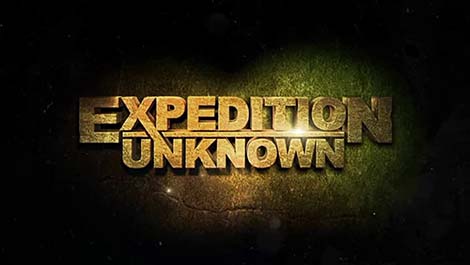
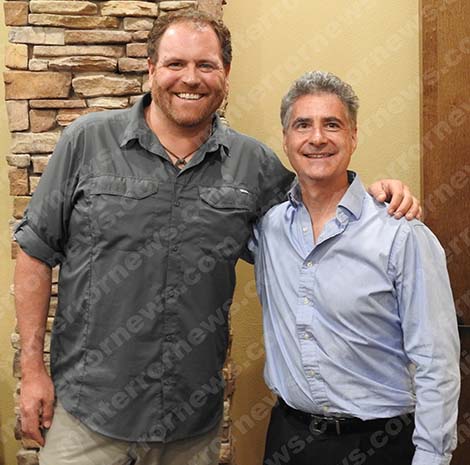
1. Why is the S.S. Pulaski shipwreck important?
First and foremost it is an important part of American history. It tells of a time when Paddle Wheel steam ships were the latest and fastest mode of transportation. A time when there was no internet and news traveled very slowly. When there were no satellites or weather forecasts. Hurricane forecasts did not exist and when clear weather could turn from a clear blue sky to a raging storm in a matter of hours. Aside from this, the S.S, Pulaski contained the personal items of all those aboard. Among all these artifacts were the currency of the time. In this case, some of the coins were freshly minted gold coins from the Philadelphia mint.
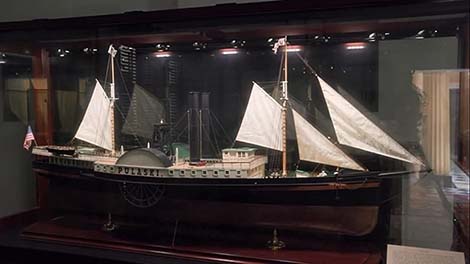
2. How did the Discovery Channel and Expedition Unknown host Josh Gates find out about this shipwreck?
Craig Fiumara, with whom you saw with me on this Episode, had visited with and been in contact with Micah Eldred (Endurance President). Craig regularly reaches out to shipwreck investigators, explorers, and finders to evaluate any potential relationships or business ventures that NCS could assist with or be involved with.
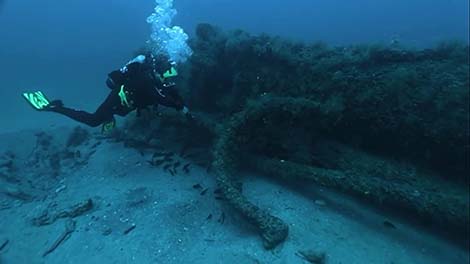
3. How did NGC and NCS get involved with this discovery?
Craig reached out to Micah and informed him of our company (NCS/NGC), what we do, the services we offer and shipwrecks we have handled.

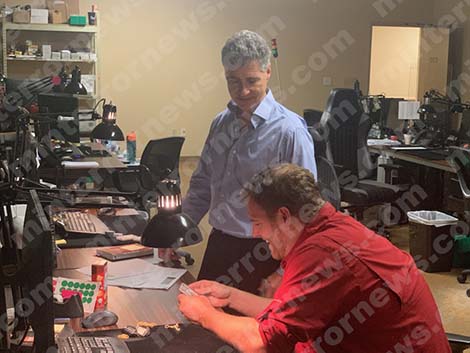
4. What kind of coins were recovered?
Consistent with the time period of the wreck, there were a variety of coins ranging from the 1700's thru 1836 (the time of the sinking). These included both US coins (1¢, 10¢, 25¢, 50¢, and $5) and a variety of World coins, again consistent with the coins circulating in the United States at this time period. This included coins from Bolivia, Columbia, Peru, Mexico, etc. Mostly 8 Reales and Escudos.
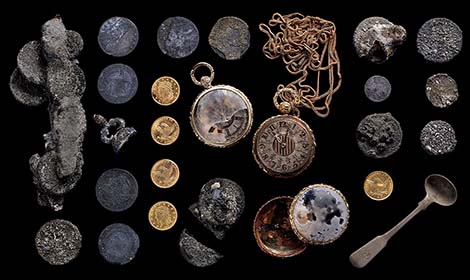

5. What is the value of the lost coins?
Depending on what coins are found and retrieved and the condition, after conservation, the value today could be in the tens of millions of dollars.
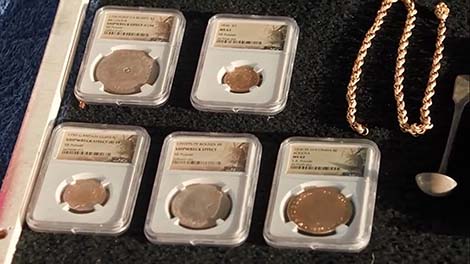
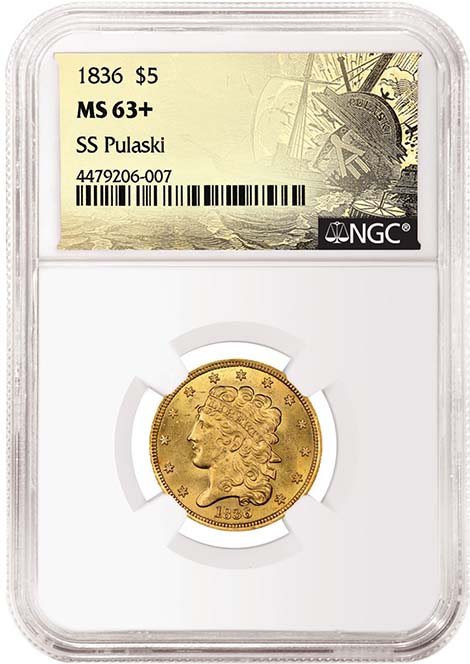
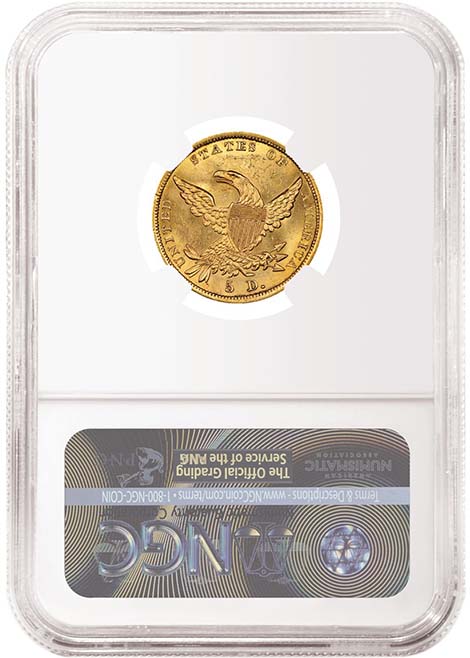
6. What condition were the coins in when discovered and what did NCS do to them?
Consistent with most shipwrecks, the "shipwreck condition" varied greatly depending on the coin's alloy. Coins made of less noble metals, such as copper and silver, usually do not fare well in extended periods of underwater conditions. Pure gold, on the other hand, will not tarnish, but since coins of this era are alloyed with silver and gold, there can be some degradation of the coins. There are many other factors that can affect the condition of the coins including interaction with sand, currents, other metal items (like iron), etc.
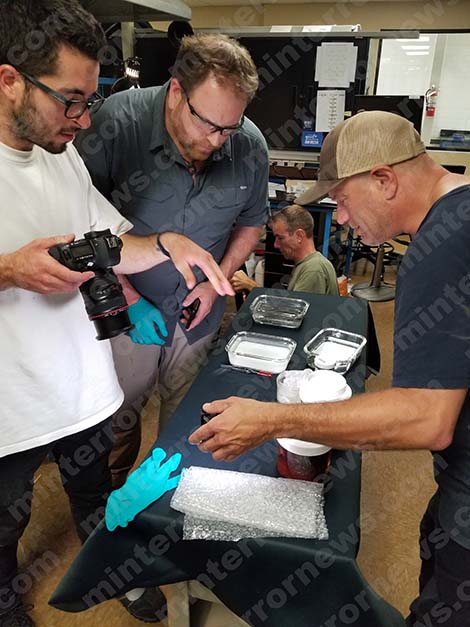
7. What is your role at NGC and NCS?
I am President and Chief conservator of NCS and Grader and Finalizer at NGC.
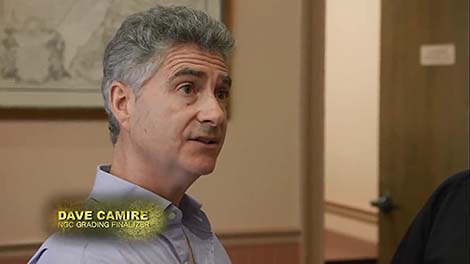
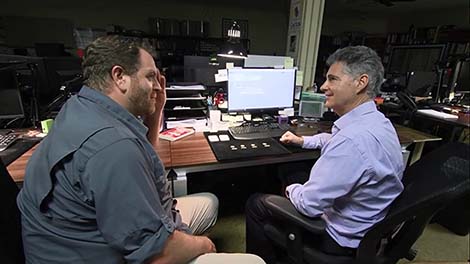
8. How did you become interested in coins and numismatics?
Like most of the collectors of my generation, I began by collecting coins I found in circulation.
9. What's the most valuable coin you've ever handled?
It is hard to say. I have examined or graded most of the coins in the Redbook, most modern Chinese coins (from 1970's to present), and many others. I was asked to authenticate and grade the 1933 $20 pieces held at Fort Knox. So, I have seen my fair share of million dollar coins and multi-million dollar coins, not to mention the great rarities of the Smithsonian Institute!

